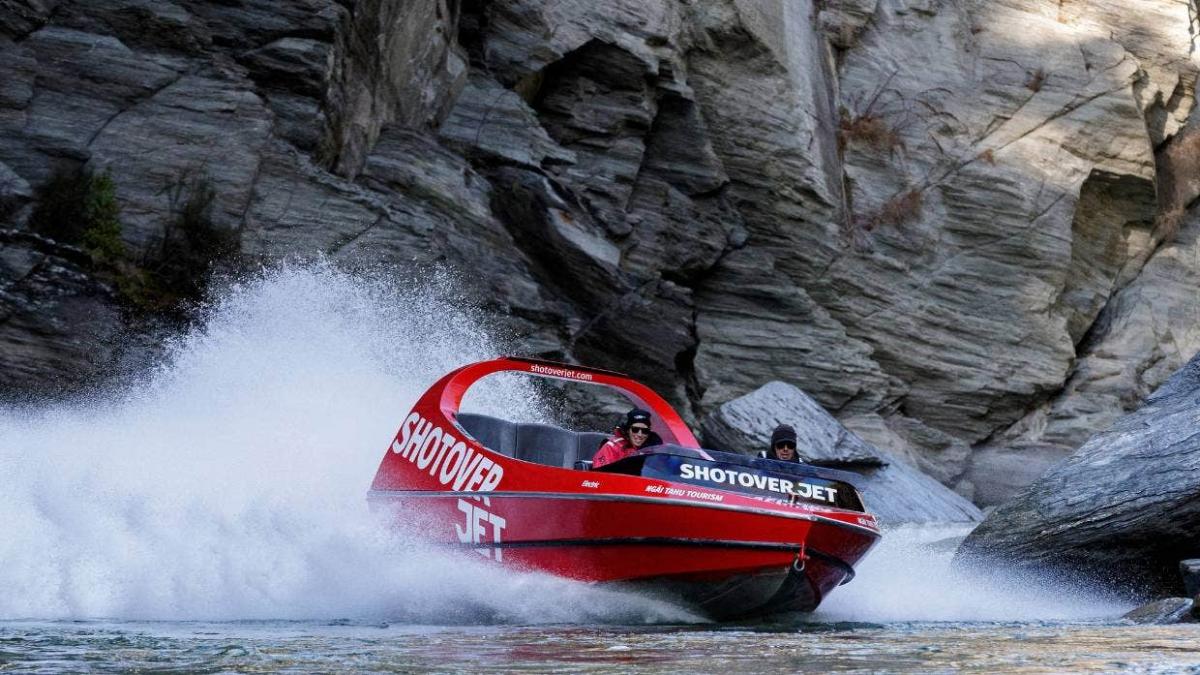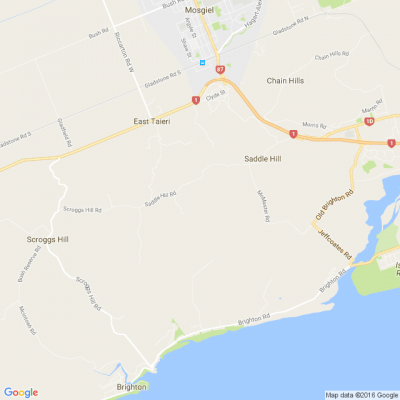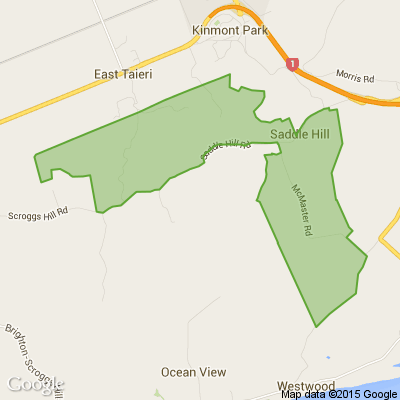World-first electric jet boat revealed as Ngāi Tahu unveils climate change action plan
Shotover Jet has unveiled an electric jet boat it says is the first to be designed solely for tourism as owners Ngāi Tahu plans for a zero carbon future.
The iwi revealed its 88-point action plan to tackle the causes and effects of climate change and a host of other environmental issues at a ceremony in Queenstown on Wednesday.
Te Rūnanga o Ngāi Tahu Kaiwhakahaere Lisa Tumahai said the escalating effects of climate change across the Ngāi Tahu takiwā (tribal area) were having a profound impact on the iwi’s interests, activities and whānau.
“We need to rapidly evolve if we are to adapt and thrive in this brave new world.”
The iwi would take major steps to cut greenhouse gas emissions, embrace renewable energy, optimise resource use, and reduce water and ecosystem impacts over nine years.
One vital element was protecting whānau by powering marae with solar energy to make them more resilient and self-sufficient, as well as identifying jobs for Ngāi Tahu whānau in the green economy.
“We don’t claim to have all the answers, but our size and influence gives us the freedom to innovate.
“This jetboat prototype is an exciting expression of what that innovation can achieve,” Tumahai said.
Ngāi Tahu Tourism general manager Jolanda Cave said that once the jetboat prototype was put into service, the experience would be quieter and more environmentally sound, running on rechargeable electric batteries rather than fossil fuels.
The prototype project began in 2019 when Ngāi Tahu Tourism entered a co-founding agreement with the Energy Efficiency and Conservation Authority and was awarded up to $200,000 to convert one of their petrol-powered jet boats to run on electricity.
It would take several years to confirm the commercialisation of the electric prototype, Cave said.
The tourism arm of the company aimed to make all its operations carbon-neutral by 2050.
“We all have a role to play in ensuring our world is healthier for future generations and while there is a long road to travel, the electrification of our jet boat fleet is an incredible step,” Cave said.
Tumahai said that as mana whenua the iwi were putting into action the core principles of kaitiakitanga and rangatiratanga.
“We look after our whenua, we care for our whānau and we take ethical actions and decisions for the future of our mokopuna.”
Key targets:
- A 17% methane reduction from farm animals by 2035.
- By 2030, all marae and Papatipu Rūnanga facilities to be supported to upgrade to technologies that ensure long-term resilience in energy, water and resource optimisation.
- By 2030, agri-tech solutions to be in place in specific Ngāi Tahu Farming sites to reduce water use.
- From 2022, a year-on-year reduction in synthetic fertiliser with paddock by paddock soil testing.
- By 2030, Ngāi Tahu to be actively exercising rangatiratanga over freshwater.
- By 2030, all new developments to have ecosystem enhancement plans to protect wai and mahinga kai sites.
See all the targets here.

Time to Tickle Your Thinker 🧠
If a zookeeper had 100 pairs of animals in her zoo, and two pairs of babies are born for each one of the original animals, then (sadly) 23 animals don’t survive, how many animals do you have left in total?
Do you think you know the answer? Simply 'Like' this post and we'll post the answer in the comments below at 2pm on the day!
Want to stop seeing these in your newsfeed? No worries! Simply head here and click once on the Following button.

Poll: As a customer, what do you think about automation?
The Press investigates the growing reliance on your unpaid labour.
Automation (or the “unpaid shift”) is often described as efficient ... but it tends to benefit employers more than consumers.
We want to know: What do you think about automation?
Are you for, or against?

-
9.5% For. Self-service is less frustrating and convenient.
-
43.4% I want to be able to choose.
-
47.1% Against. I want to deal with people.
Have you got New Zealand's best shed? Show us and win!
Once again, Resene and NZ Gardener are on the hunt for New Zealand’s best shed! Send in the photos and the stories behind your man caves, she sheds, clever upcycled spaces, potty potting sheds and colourful chicken coops. The Resene Shed of the Year 2026 winner receives $1000 Resene ColorShop voucher, a $908 large Vegepod Starter Pack and a one-year subscription to NZ Gardener. To enter, tell us in writing (no more than 500 words) why your garden shed is New Zealand’s best, and send up to five high-quality photos by email to mailbox@nzgardener.co.nz. Entries close February 23, 2026.







 Loading…
Loading…